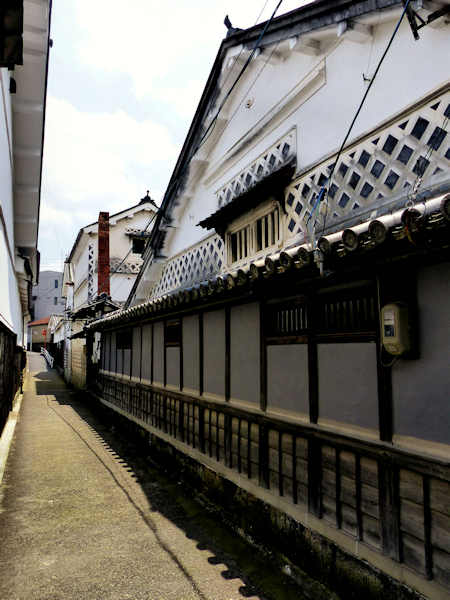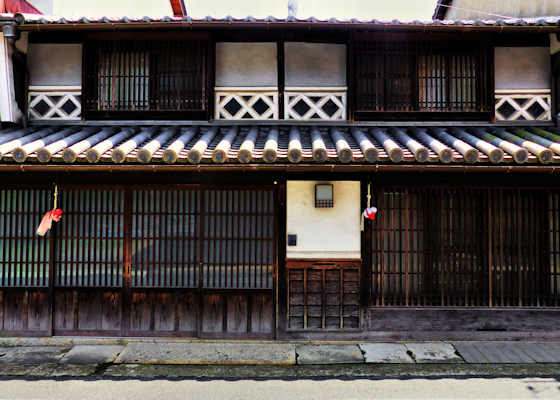Dentoteki Kenzobutsu-gun is a category of historic preservation in Japan that translates as "groups of traditional buildings" and there are currently more than 120 of these groups scattered throughout Japan but for brevity's sake I refer to them as either Preservation Districts or Historic Streetscapes.
In recent years I have become more intrigued by them and have sought out some of the more remote examples on my walks around western Japan.
Tsuyama in the mountains of central Okayama Prefecture was a former castle town that is home to two of these Preservation Districts, the more well-known one called Joto.
It's about 1.2 kilometers of the old Izumo Kaido that connected Izumo with the old capital area of Kyoto and Osaka and hence on to Edo.
It was a popular road used by pilgrims visiting Izumo Taisha and had many inns for travellers as well as a wide variety of commercial properties, some of which remain today.
Mostly machiya, traditional townhouses, with many having namako-kabe, literally "sea cucumber walls". the diagonal dark tiles with raised white grouted joints that reminded people of sea cucumbers, as well as koshiirimado and mushikomado latticed windows.
Theer are, of course, the obligatory sake breweries, as well as shops selling traditional confectionary, including the local specialty kirigasane, and local varieties of tofu, and shops selling tradional craft products using local indigo dye. There are also cafes, restaurants, and teahouses.
Several;properties are open as museums including the Archives of Western Learning dedicated to local men who introduced various aspects of western knowledge into the area. The biggest open house I will cover in the next post.
Overall it's not a bad street to wander, with lots of traditional architecture without becoming too over touristy.
This was the end of my 4th day walking along the Chugoku Kannon Pilgrimage, and Tsuyama had struck me as being well worth another visit when I have the time to explore more. The previous post was the
Chiyo Inari Shrine below
Tsuyama Castle.











No comments:
Post a Comment